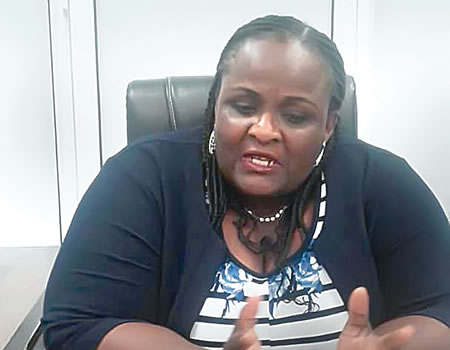WHAT does the new Competition and Consumer Protection Act portend for consumerism in Nigeria?
It’s a good one, a step in the right direction. It gives reassurance to the cause of protecting the rights of consumers in Nigeria. It’s a federal enactment. It’s an improvement on the old consumer protection council law. It creates a tribunal. I think it’s an elevation of the role of a council to become a commission. It has increased the powers. It also empowers the Commission to establish a tribunal. In addition to this, I noticed that it created offences, which were not part of the old law. Some things from our own law too have been incorporated into the new law.
Does it mean your agency will be making use of the new consumer tribunal now?
Not necessarily We have been filing our court matters at the court in Lagos State. We use the small claim court, whose jurisdiction is limited to five million naira. And the dispensation of justice, there, is very fast. But what we are doing now is to get a dedicated court. We are working on that. We’ve written to the judiciary. Hopefully, we will get a positive response any moment from now.
That means the agency will have nothing to do with the tribunal when it is eventually set up?
We don’t need to. Once we have our dedicated courts, like you have the family court, the criminal court and the domestic violence court. They are dedicated courts that handle only those matters. So what we are getting is Consumer Protection Court, and the only thing that court will be doing is our matters. We’ve forwarded our letter to the judiciary, and the chairman of the board is also pushing it for us. Besides, the law that established the agency states that we should approach the judiciary for a dedicated court. So, we are hopeful that we’ll get one soon.
How has it been since last year, when the agency was established?
It’s been okay. We treated different types of consumer issues. So, out of about 273 matters that we’ve handled, we’ve resolved about 220, through ADR, that is by inviting the parties , looking at the issues and being able to resolve them, either in form of refund of money, replacement of products and also getting some compensations. We also observed that, of late, the moment you write to people who are respondents, without much ado, they resolve the matter. So the complainant would just give us a feedback that they have been called and the whole thing, sorted out. The moment they receive our letters, they act.
Do we take it to mean that people are now aware of the importance of the agency?
I think so. They are becoming increasingly aware of our activities.
There is this complaint about overregulation and proliferation of consumer protection agencies -CPC, LASCOPA, SON and even NAFDAC, in some quarters. When it comes to protecting consumer interest, can we really talk about over regulation?
We can not. The population of Nigeria is over 200 million, and that of Lagos, around 24 million. We only have LASCOPA in Lagos. CPC is here. They have eight zones in Nigeria, and one of the zones is here. The zone is to take care of the western zone. So are we trying to say a LASCOPA that was established less than one year ago, has done enough concerning the 24million residents of Lagos? I beg to disagree with such claim. Secondly, SON’s role is to establish standards. In our engagements and discussions with them, they say it’s not possible for federal government agencies, operating on zone levels from Lagos, to be able to address issues at the grass root. They don’t have the wherewithal. They can not. It’s not possible for them to address 24 million residents’ matters, only in Lagos. Meanwhile their responsibilities cover the whole of the western zone. They don’t even have the capacity. So what I’m saying in essence is that SON does its bit as much as it can do, concerning setting up standards, relating to different sectors of the economy.
What is your relationship with these other consumer agencies, is it like that of DSS and EFCC, mutual distrust?
We are not rubbing shoulders with anybody, and there is no conflict anywhere. We are here to protect the rights of consumers in Lagos State. I don’t see any conflict between us and any other consumer agencies. The relationship is cordial, particularly with SON. SON has been very helpful. They help us, they assist us in doing our work. We now have Scientific Investigation and Research Department. So because of certain projects that we’ve undertaken with NAFDAC, we’ve had reasons to relate with NAFDAC, and they are helping us in their own way.
What does the Scientific Investigation and Research Department do?
The head of the unit is an assistant director. He’s a scientist, studied Microbiology and did some courses in other science subjects. And he’s quite experienced when you are talking about conducting tests and talking about issues that relate to environment. What they do is to conduct research on different issues. Now we have a project, called the fruit, vegetable packaging, handling and storage project, in partnership with SON, Ministry of Wealth Creation and Lagos State Market Board. We need to carry out test, and SON has offered us their well-equipped laboratory to conduct the test. Apart from that we want to carry out the campaign on the risk involved in placing drinks under the sun, directly outside the shop. They’ve conducted a research and came up with a very detailed report on the hazards and the risk involved in displaying drinks under the sun, for sale. And we have other projects that we have in mind. But these two projects are for this quarter and probably spill over to the next quarter.
The issue of jurisdiction still remains confusing. Can a consumer living in Ogun, but with an issue with a brand based in Lagos come over to the agency to complain?
If the infraction was committed in Lagos, why not, but we are mindful, you know each state has its jurisdiction. Ours covers Lagos. I see the case you’ve just cited as an exemption to the rule, if the consumption was done in Lagos why not?
How easy has it been protecting the rights of e-commerce consumers?
Well, we had a parley with those who are involved in e-commerce. We told them the complaints received from consumers, and they also told us their problems. We told them about the quality of the products they sell, we complained about the customer service that it is terrible, that it doesn’t exist. We told them about the delay in the delivery time. We complained about fake advertisements. We complained about their return policies. And one of them explained that most of their products are from third parties who use their platforms. We told them they should do more, that they should have Quality Control persons in their warehouses to look at these products. They gave us their words that they will do more, improve on what they offer, something like an undertaking. And in fairness to them, since then, we’ve seen a huge reduction in complaints, concerning those with platforms that do businesses online. We’ve not received complaints concerning Jumia, Konga in about four, five months. That means there is probably an improvement. That means it’s probably a very useful parley.
Consumers that have interacted with the workforce of the agency have described it as highly professional, considering the way issues are being handled here. Is it that you have to go for a special training before working here?
We appreciate the compliments and quite encouraging. We have like induction training for new intake when you come in. We have a consumer rights advocate on our board, Mrs Sola Salako-Ajulo. She comes to the training, to tell the new intake how to address complainants, how to receive complaints without delaying the process. We are impressed with such feedback, but we believe we can always improve on it. So we continue with our capacity building.
The consumer day is around the corners, March 15, to be precise. What are the agency’s plans against the day?
The theme for this year’s Consumer Rights Day is Tested Smart Products. We propose to have a campaign at the computer village that will address that theme. You know, of late, the people at the computer village have been very cooperative. So we plan to celebrate the Day with them at the computer village.
How challenging has it been protecting the rights of millions of consumers in Lagos?
Quite challenging, people come up with different kinds of products, we’ve seen a lot with them, but we still have the zeal, the desire, to do the needful that will promote and protect the rights of consumers. But we are up to the task. God willing this time next year, we all will be better off, in terms of campaign, sensitisation, engagements, parleys that LASCOPA carries out. There is no week that our enforcement and monitoring unit goes out and doesn’t come back to report cases of expired products being displayed by retailers in Lagos. The shop they went to in Allen, recently, big shop for that matter, they found products that had expired since January. So we’ve done enough regarding doing friendly visits to these shops and telling them to remove them, but very soon when we get the courts, we’ll start prosecuting offenders, because it’s not fair on consumers. Some of them will just display products, they don’t even check their stores, they don’t do audit of the products they display. What we do is we pick an item each from the expired product and require them to remove them. But in fairness to all the shops so far, they’ve removed them, except a woman who was trying to be funny after we served her. She’s on Toyin Street. After we served her the Compliance Notice, she said in UK, there is nothing wrong in selling expired products, but we told her, it’s not acceptable here.
But could that be true?
Never, in UK she was trying to be funny. What we did was after we removed the product, we then served her and gave her a time that we were coming back. Without her expecting us, recently we went back there to do on-the-spot check and we discovered she had removed the product. Unfortunately, our people too are too lazy to check some of this vital information on the products. I’ll just implore them to spare a few minutes to read the information on wrappers of these products in order to make informed choices, and ask questions on what you are purchasing. One of the consumer rights is the right to information, and the right to choose.






